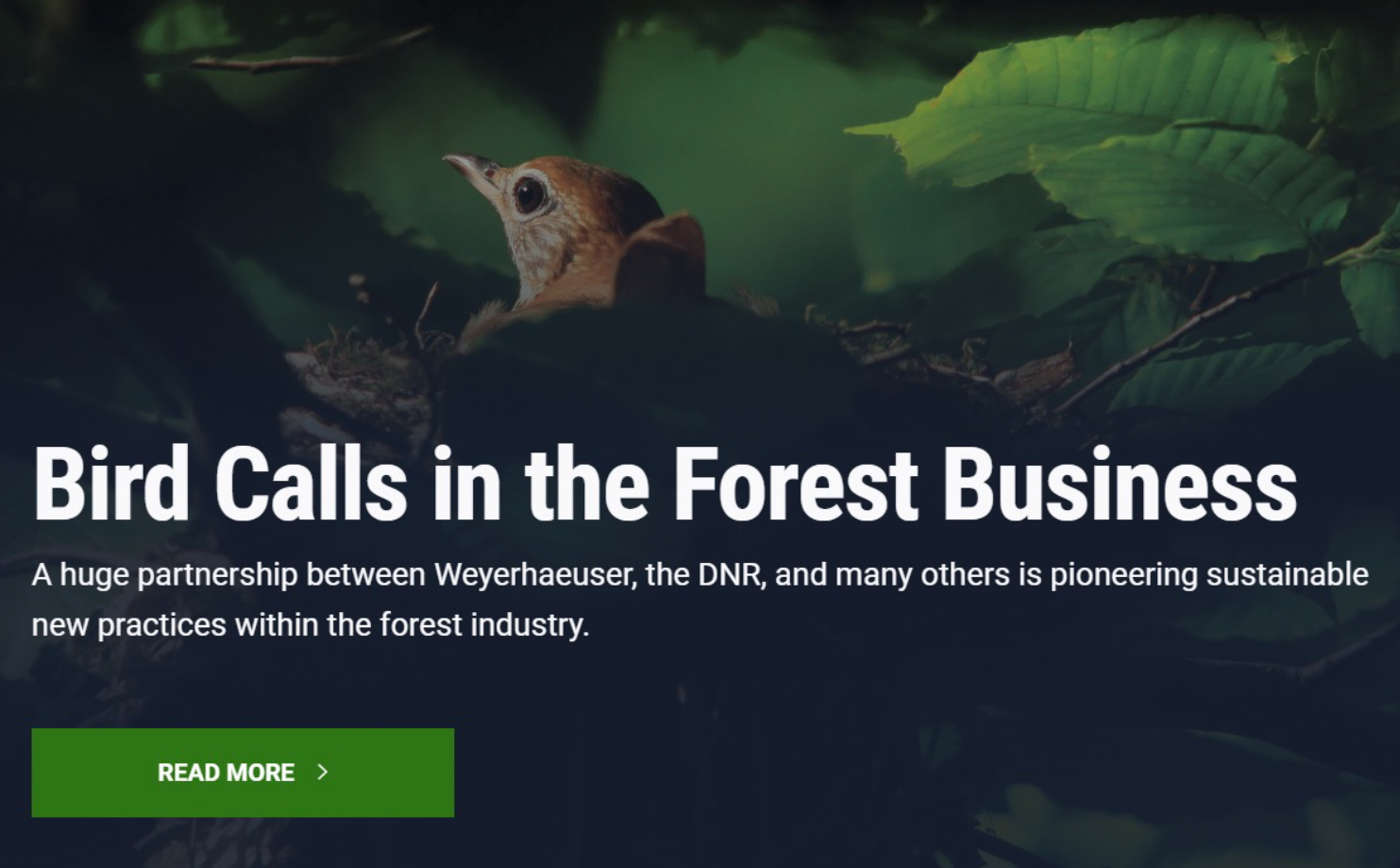By Steve Wilent
A recent grant to the Sustainable Forestry Initiative (SFI) from the National Fish and Wildlife Foundation (NFWF) is bearing fruit in West Virginia. Or rather, birds. With the aid of the grant, SFI is working with federal, state, private, university, and non-governmental organizations with a shared goal of researching best practices that benefit bird species, especially three at-risk bird species: the golden-winged warbler, the cerulean warbler, and the wood thrush.
The grant supports using sustainable forest management practices to support these at-risk songbirds by helping forest owners to enhance the forest habitats the birds need for survival. Researchers will examine the effectiveness of a range of management practices on at least 15,000 acres, including relatively small tracts owned by individuals and families, as well as lands owned by forest-products giant Weyerhaeuser.
The West Virginia test sites, covering at least 15,000 acres of forests in Central Appalachia, boast some of the most biologically diverse, temperate deciduous forests in the United States.
This collaborative research project was recently described in “Bird Calls in the Forest Business,” in Wonderful West Virginia magazine. The article cites Rich Bailey, state ornithologist from West Virginia’s Division of Natural Resources: “Though there are many reasons why these bird species are in decline, a big driver is habitat loss. West Virginia is a forest state and the third most forested state in the country. Because we’re so forested, we have a pretty large responsibility for some of these species. We need to start moving the dial on conservation for the species. And that means habitat management, in a lot of cases.”
In June, SFI named the project partners as collective recipients of the 2022 SFI Leadership in Conservation Award: Weyerhaeuser (an SFI-certified organization), NFWF, the Appalachian Mountains Joint Venture, the American Bird Conservancy, the West Virginia Division of Natural Resources, and West Virginia University.
In response to receiving the award, Amanda Bassow, Director of the Northeast Regional Office for NFWF, noted that “This partnership has developed an innovative approach to scaling up conservation in the region by leveraging SFI’s widely adopted certification standards to specifically promote conservation of rare or declining species. The project has the potential to serve as a model for networking private landowners to promote forest management for wood and wildlife.”
The project highlights the requirements of the SFI Forest Management Standard to address landscape-level biodiversity. The best practices developed by the partners will help inform management actions across other SFI-certified lands in the Appalachians and beyond.
Read the full article here.
